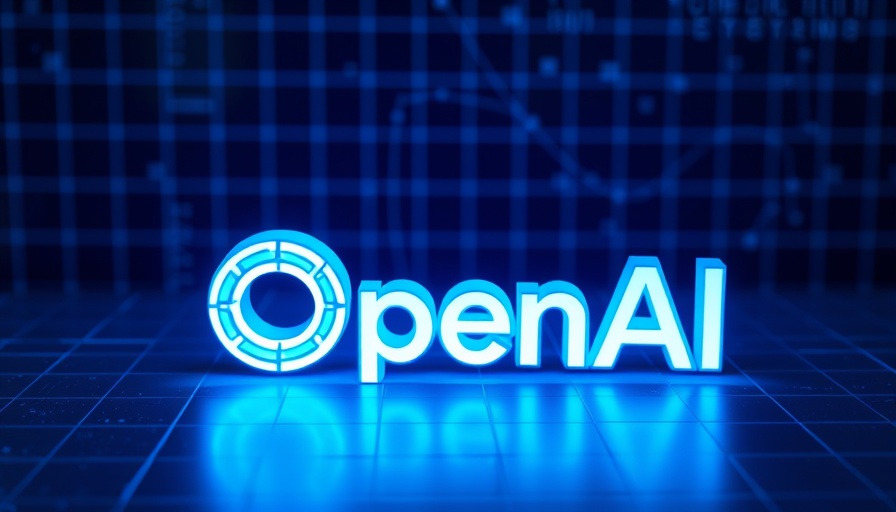
OpenAI's 'Codex': A Revolutionary Tool for Software Development
OpenAI has stepped into the spotlight once again with the launch of 'Codex', an AI agent tailored specifically for software engineering. This groundbreaking technology promises to reshape how developers interact with their code, ultimately driving productivity and innovation throughout the tech landscape.
Understanding Codex: Transforming Software Engineering
So, what exactly is Codex? OpenAI describes it as a delegate capable of performing software engineering tasks seamlessly within a cloud environment. It's designed to assist users in executing complex tasks, thus liberating them from the mundane details of coding. By leveraging the new codex-1 model, Codex aligns more closely with human coding standards and preferences, resulting in cleaner, more efficient code creations.
OpenAI's aim is not just technical; they are dedicated to making the coding process more intuitive. With Codex, developers can delegate tasks such as writing features, fixing bugs, or even answering code-related questions. Users simply type commands into ChatGPT's interface, and Codex springs into action—an innovation designed to enhance efficiency.
How Codex Integrates into Developer Workflows
Codex's integration within the ChatGPT platform is a strategic move to streamline the developer experience. Users can communicate directly with Codex via a simple prompt, greatly simplifying task allocation. Additionally, every action performed by Codex operates within a cloud sandbox, ensuring that codebases remain untouched until explicitly altered by developers.
The platform enables active monitoring of Codex as it works, providing real-time feedback on progress. Once Codex completes a task, it presents verifiable evidence of its actions, including terminal logs and test results, allowing developers to trace the process step-by-step. This level of accountability is crucial for maintaining code quality and ensuring transparency in automated processes.
What This Means for the Future of Development
The implications of Codex on the development landscape are profound. The AI coding agent aligns with industry trends that see an increasing reliance on artificial intelligence and automation in programming workflows. Given that developers often face time constraints and productivity pressures, Codex stands out as a solution to not only streamline tasks but also empower developers to focus on strategic coding practices rather than on repetitive chores.
Moreover, Codex showcases the growing intersection of artificial intelligence and software engineering — a potent reminder that as our digital needs evolve, so too must our tools. It reflects broader trends in philosophical discussions about AI’s role in creative fields, particularly coding, which was once regarded as a uniquely human endeavor.
Invitation for Early Access and the Competitive Landscape
Currently, Codex is available to a select group of users, including ChatGPT Pro, Enterprise, and Team users, with broader availability anticipated soon. This rollout underscores OpenAI’s strategy to dominate the AI programming market. It follows reports of the company's potential acquisition of Windsurf, a startup focused on AI coding tools, hinting at ambitious plans in the domain.
As other tech giants also accelerate their AI offerings, Codex positions OpenAI firmly at the forefront of this tech arms race, potentially shaping the future of how we think about software development and leading discussions on AI ethics within this context.
The Business Perspective: Why IT Leaders Should Pay Attention
For CEOs, marketing managers, and business professionals, understanding the implications of tools like Codex is critical. AI isn't just transforming software development; it's influencing business models, processes, and competitive advantage across industries. With tools that boost productivity and efficiency, organizations can gain significant leverage in market competition.
Implementing Codex could lead to cost savings, higher-quality code, and faster development cycles. Those who embrace this technology might find themselves leading the pack in the race toward digital transformation, where agility and efficiency are paramount.
Conclusion: Embracing the Future of AI in Software Development
The launch of OpenAI's Codex marks a pivotal moment in the intersection between artificial intelligence and software engineering. As businesses prepare for future challenges, engaging with AI-driven tools will be essential in staying competitive. The potential of Codex extends far beyond mere task automation; it embodies a vision for a more collaborative interaction between humans and technology.
As leaders in technology and business navigate this new landscape, one question remains: Are you ready to innovate alongside this emerging AI? Seize the opportunity to explore how Codex can enhance your development capabilities.
 Add Row
Add Row  Add
Add 




Write A Comment